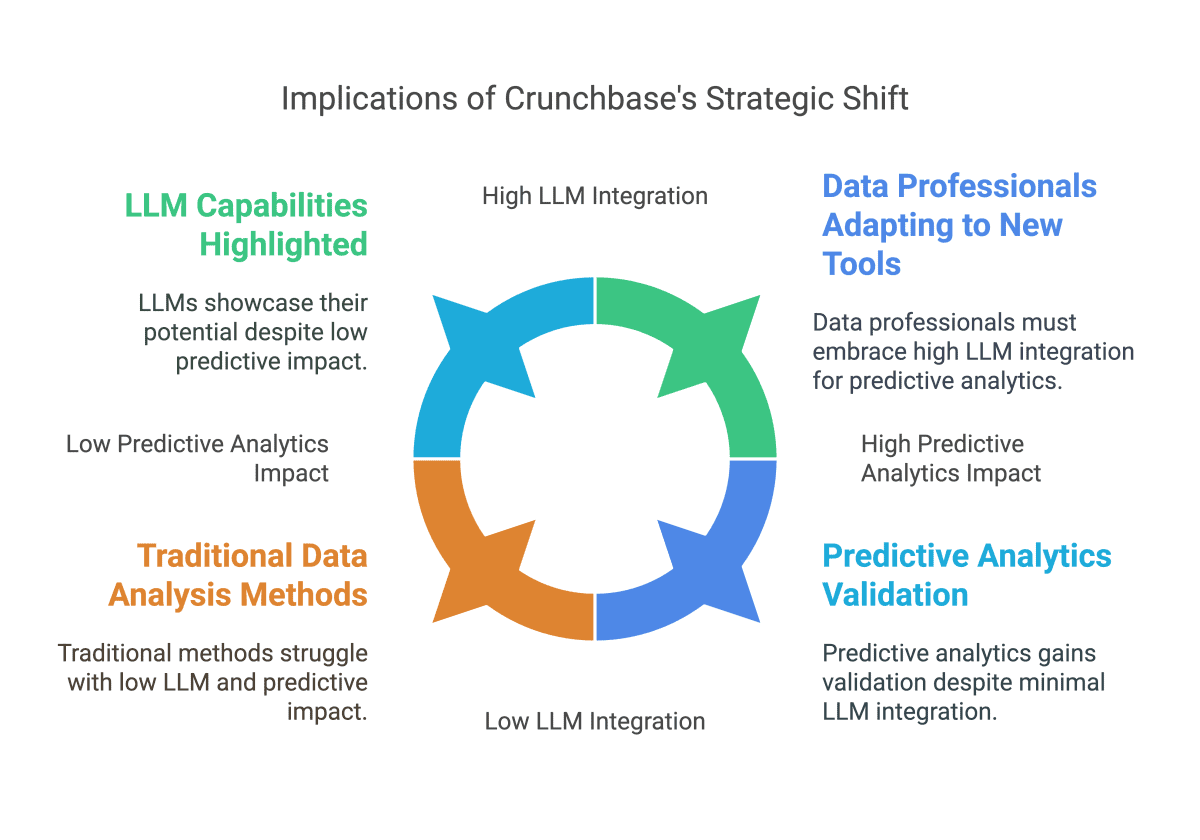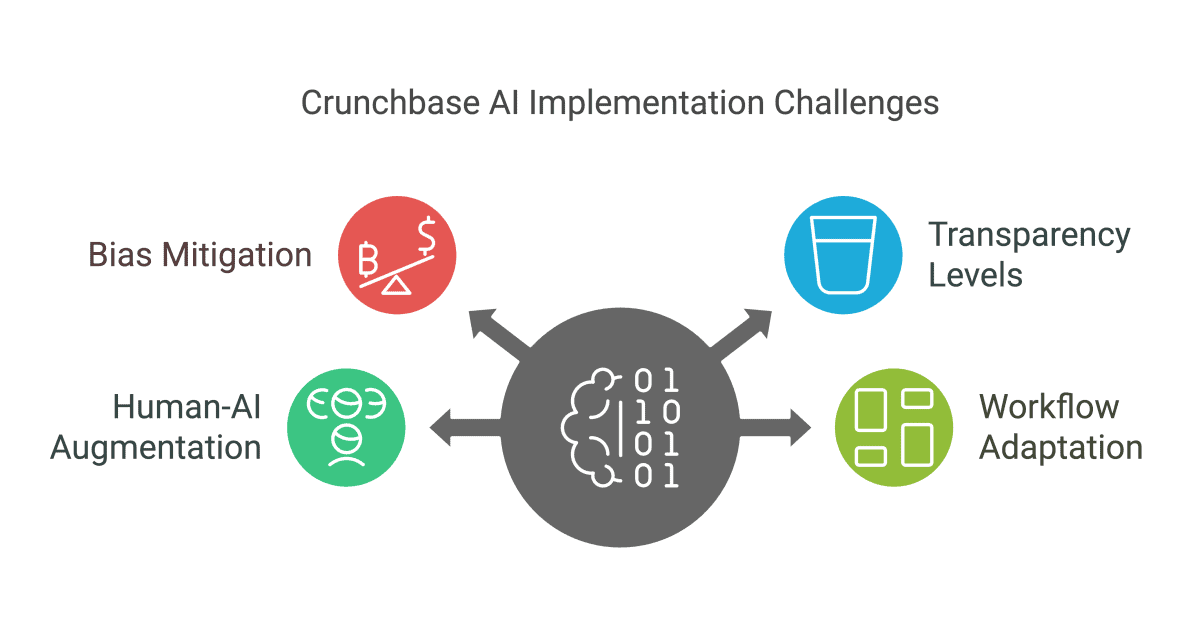Jager McConnell just declared historical data “dead.” As a data-driven SEO and analytics guy, this is my take on Crunchbase’s AI pivot – and what it means for the future of everything.
So, when I saw the news about Crunchbase’s radical transformation, my ears perked up. This isn’t just another tech company jumping on the AI bandwagon. This is a fundamental shift in how we think about data – and it has huge implications for anyone working with data, SEO, or, well, anything in the digital world.
Crunchbase CEO Jager McConnell basically said, “Historical data? Meh.” He declared the historical data industry “dead,” replacing Crunchbase’s core offering with an AI-powered prediction engine. Think Minority Report, but for startup funding and acquisitions.
Why This Matters to a Data Geek (and Probably You)
As someone who spends their life sifting through data to find actionable insights, this resonates deeply. We SEOs are constantly trying to predict the future – what keywords will trend, what content will resonate, what Google’s next algorithm update will do. We’re already living in a predictive world, even if we don’t always realize it.
Crunchbase’s move just takes that to the extreme. Here’s why it’s significant:
- It Validates the Power of Predictive Analytics: This isn’t some pie-in-the-sky concept. A major player in the data industry is betting its entire future on the idea that predicting outcomes is more valuable than analyzing past ones.
- It Highlights the Insane Capabilities of LLMs: Crunchbase is leveraging Large Language Models (LLMs) to do what was previously impossible. They’re not just crunching numbers; they’re understanding the complex relationships within the startup ecosystem. As a Python and LLM enthusiast, this is fascinating.
- It’s a Wake-Up Call for Data Professionals: If historical data is becoming less relevant, we need to adapt. We need to learn how to work with these predictive algorithms, how to interpret their outputs, and how to identify the leading indicators that drive those predictions.
- It is a direct challenge to other data companies. How will other companies respond to this bold move?
Diving into the Tech: How Crunchbase’s AI Works (My Speculation)
While Crunchbase hasn’t revealed every detail of their AI architecture, we can infer some key components based on their announcements and my own experience:
- Massive Data Ingestion: They’re leveraging data from 80 million users, including search queries, profile views, and list creations. This is a goldmine of behavioral data.
- NLP for Unstructured Data: They’re almost certainly using Natural Language Processing (NLP) to extract insights from news articles, press releases, and other unstructured text sources. This is where LLMs shine.
- Feature Engineering: Their “growth score” based on 72 variables is a classic example of feature engineering. I’d bet they’re using things like:
- Website traffic data (similar to what we use in SEO!)
- Social media engagement
- Employee growth on LinkedIn
- Patent filings
- Funding rounds data (obviously)
- Competitor analysis (identifying emerging threats and opportunities)
- Gradient-Boosted Decision Trees (Probably): This is a common and powerful machine learning technique for predictive modeling, especially with tabular data.
- Model Agnosticism: They’re smart to use multiple LLMs (OpenAI, Claude, etc.). This gives them flexibility and avoids vendor lock-in. It’s the same principle I apply when choosing SEO tools – diversification is key!
The Big Questions (and My Two Cents)
This move raises some serious questions:
- Bias: How do they ensure the AI doesn’t perpetuate existing biases in the VC world? This is a critical issue, and I’ll be watching closely to see how they address it.
- Transparency: How much will they reveal about the “black box” of their algorithms? Understanding why the AI makes a prediction is crucial for trust and informed decision-making.
- The Human Element: Crunchbase says they’re aiming for augmentation, not replacement, of human judgment. But let’s be real – the allure of a 95% accurate prediction is going to be hard to resist. Will we see a decline in critical thinking and due diligence?
- My Own Workflow: How should I be adapting my SEO and analytics strategies to this new reality? I’m already thinking about incorporating more predictive modeling into my work.
The Takeaway: The Future is Predictive
Crunchbase’s pivot is a sign of the times. We’re moving from a world of data analysis to a world of data anticipation. As data professionals, we need to embrace this change, learn the new tools, and develop the skills to thrive in a predictive future. This means mastering LLMs, understanding advanced statistical modeling, and, perhaps most importantly, developing a healthy skepticism towards even the most sophisticated algorithms.
I’m excited (and a little bit nervous) to see how this plays out. What are your thoughts? Let me know in the comments! And if you’re geeking out about this as much as I am, let’s connect.






